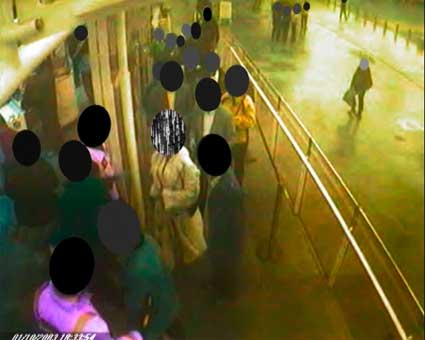No Ars Electronica desse ano, cujo tema é Goodbye Privacy, Manu Luksch falou sobre o Manifesto for CCTV Filmmakers. O Manifesto busca estabelecer regras e procedimentos para o uso de imagens geradas por câmeras de vigilância. Um exemplo prático é o seu longa “Faceless”, filme sem câmeras ou outro qualquer equipamento, a não ser as imagens geradas pelas câmeras de vigilância. Vejam detalhes:

“The manifesto establishes rules, procedures, and identifies issues useful for filmmakers who want to the costs of creating a movie – by using images captured by CCTV cameras. Her text follows closely the Data Protection Act (DPA) 1998 and related privacy legislation that gives the subjects of data records access to copies of the data. The manifesto can be adapted for different jurisdictions. The artist demonstrated the validity of her manifesto with the movie Faceless. Sadly the movie was not shown at ars, only the Making of.
Under the DPA, one has the right to retrieve data which is held upon oneself, while the faces of anyone else captured on it have to be blacked out. She therefore claimed the as much CCTV footage of herself as she could and created a story set in the future, in the “faceless world” – with herself as the only woman with a face.

No specialist equipment nor cameras were involved. The movie was made in London, the city which has the highest density of CCTV surveillance camera on Earth and the capital of a country that is getting increasingly Orwellian.
“My requests were more often than not replied to in an inadequate or uninformed way – the controllers had clearly not heard of the Data Protection Act,” she told the BBC. She´d either get no reply – despite the law stating requests for images must be responded to in 40 days – or would be told no images could be provided. Others attempted to charge thousands of pounds for “post-production”, even though the DPA says that only a standard fee of £10 can be charged.
“There are lots of aspects of this legislation which are clearly neglected on a daily basis,” she added.
